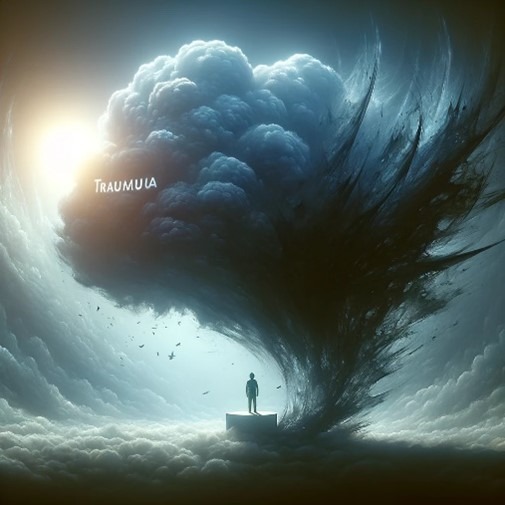Repressed Trauma

Hey everyone! Today, let's have a heart-to-heart about a topic that's often hidden in the shadows – repressed trauma. It's something that might be affecting more people than we realize, and understanding it is the first step towards healing and growth.
What is Repressed Trauma?
Repressed trauma involves traumatic experiences that your mind has, in a way, 'forgotten' or pushed out of conscious awareness. This is different from just forgetting something because your brain is actually working hard to keep these memories at bay. It’s like your mind’s way of protecting you from painful experiences.
Why Does Trauma Get Repressed?
Trauma can be repressed for many reasons. Often, it's because the experience was too overwhelming or painful to deal with at the time. This is especially common in childhood traumas, where the child doesn't have the emotional tools to handle what's happening.
The Signs to Look Out For in Trauma and PTSD
Repressed trauma can manifest in various ways. Maybe it's unexplained anxiety, sudden mood swings, or even physical symptoms like chronic pain. Sometimes, people might find themselves overreacting to situations that seem to trigger an emotional response that doesn't quite fit the current scenario.
The Triggers of Trauma

Triggers are a big part of dealing with repressed trauma. They can be anything – a sound, a place, a smell – that somehow relates to the traumatic experience. When triggered, someone might experience intense emotions or even flashbacks, not knowing why.
The Journey to Healing Trauma
Healing from repressed trauma is a journey, and it's different for everyone. It often involves therapy, where techniques like cognitive-behavioral therapy (CBT) or Eye Movement Desensitization and Reprocessing (EMDR) can be incredibly helpful.
The Role of Therapy in Healing Trauma

In therapy, the goal is to gently and safely bring these repressed memories to the surface. It’s not about reliving the trauma, but about acknowledging it, understanding it, and learning how to cope with the emotions that come with it.
Self-Care and Support Systems For Trauma
Alongside professional help, self-care is crucial. This can be anything that helps you feel grounded and safe – meditation, exercise, art, or just spending time with loved ones. And speaking of loved ones, having a solid support system is invaluable.
Breaking the Stigma of Trauma and PTSD
There’s still a stigma around discussing trauma and mental health, but it’s slowly breaking. The more we talk about these issues, the more we normalize seeking help and sharing our experiences.
The Power of Resilience
One thing to remember is the incredible resilience of the human spirit. Healing from trauma is possible, and it can lead to significant personal growth and a deeper understanding of oneself.

Repressed trauma might be a complex and challenging topic, but it’s an important one. Understanding it, acknowledging it, and seeking help are the first steps towards healing and moving forward.
In Arctic Revelation, Christian ( main character) has repressed trauma and amnesia from the day his father dies when he was just nine years old. This is a core plotline that runs from the beginning of the book right up to its shocking ‘whodunit’ conclusion. Visit Dr. Hugh Finch's website to learn more.
#RepressedTrauma #HealingJourney #TraumaAwareness #MentalHealthMatters #EmotionalHealing #SupportSystem #BreakTheStigma #ResilienceAndRecovery #TherapyHelps #SelfCareIsImportant
 Add Row
Add Row  Add
Add 




Write A Comment